In French food parlance, ‘Parmentier‘ is taken to mean anything with potatoes in it. All of these dishes are named after Antoine-Augustin Parmentier.
Parmentier was famous as the man responsible for the propagation of the potato in France. He discovered potatoes while incarcerated as a prisoner of war in Prussia when he was employed as an army pharmacist during the Seven Years War. He noticed that the potatoes fed to the prisoners not only tasted nice, but they appeared to protect him from a number of diseases prevalent at the time. On his return from war, he convinced leading Parisian medics that potatoes were not toxic to humans (they were previously thought to be highly dangerous), and he did extensive work into the chemistry of potatoes.
Parmentier would prepare endless potato dishes for his guests, and he even presented a bouquet of potato flowers to King Louis XVI of France. In return for the gesture, King Louis gave Parmentier a load of land west of Paris to grow even more potatoes on. It was on that piece of land that Parmentier made his greatest coup. In an effort to get the French people interested in potatoes, Parmentier ordered that the vegetable patch be placed under 24-hour armed guard. Under the illusion that anything guarded must be valuable, Parisians were all abuzz with gossip about what might be growing on Parmentier’s allotment. The myth made the tuber, and the potato was ascendant.
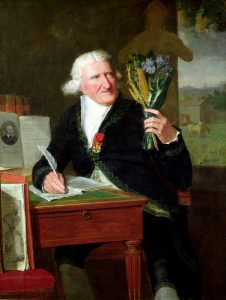
Parmentier suffered a major setback during the French Revolution in which his benefactor lost his head to the guillotine. Parmentier’s association with the crown lost him all his property, but he was saved from the chop, presumably because he had discovered an important food staple for the poor. Despite the company he kept, Parmentier was a hero of the working classes.
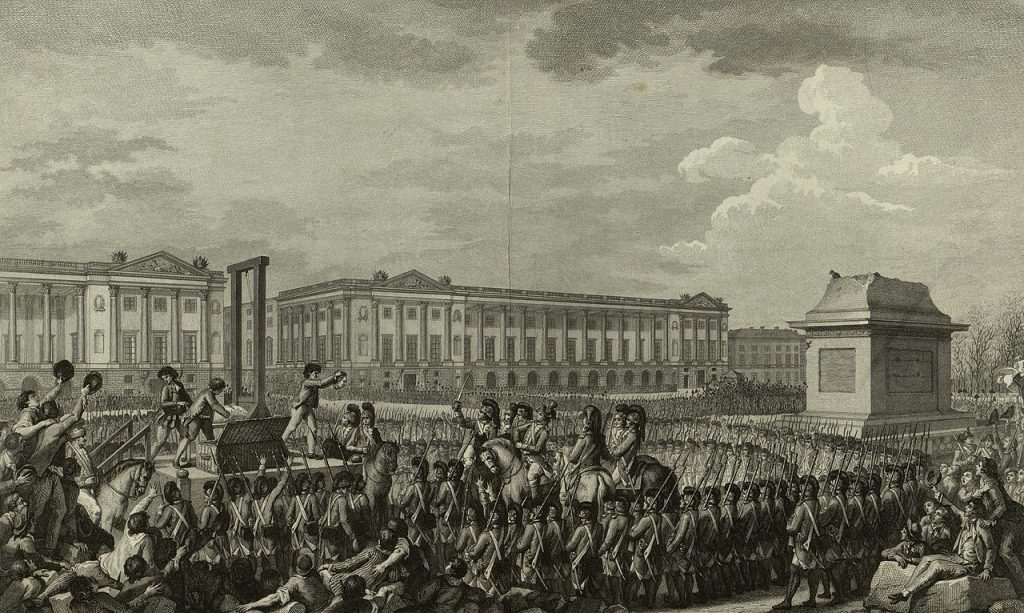
There is a dish known as pommes de terre Parmentier, that is named directly after Monsieur Parmentier. The recipe given here is for a potato-laden chicken dish from Auguste Escoffier’s 1903 Le Guide Culinaire, where it sits among pages upon pages of sautéed and fricasseed chicken dishes. As a mid-week meal, this French classic is a devastatingly simple child pleaser.
Poulet sauté Parmentier
Ingredients
- 4 legs from two free-range chickens
- 75g unsalted butter
- 4 large potatoes, peeled and cut into 2cm cubes
- 100ml white wine
- 1–2 tbsp of reduced chicken stock (see notes)
- Salt and freshly ground black pepper
- 1 handful of parsley, chopped
Instructions
Heat an oven to 200˚C
Heat half the butter in a Dutch oven. Season the chicken all over, and sauté in the hot butter until browned.
In a frying pan, melt the rest of the butter and cook the potatoes until they are lightly coloured but still uncooked. Put the gilded potatoes in the Dutch oven with the chicken, cover, and place in the oven for 30 mins.
Once done (check the potatoes with a paring knife, and the chicken with a temperature probe – you are looking for >70˚C in the thighs), remove the chicken and potatoes to a dish with a slotted spoon. Quickly reduce any liquid in the pan, and deglaze the pan with the wine. Add the reduced stock, whisk, and pour over the meat and potatoes. Garnish with chopped parsley.
Notes
The original dish called for veal stock, but this is not helpful if cooking for a non-red meat eater. Instead, we recommend making some chicken stock up and then reducing it by half to intensify the flavour.

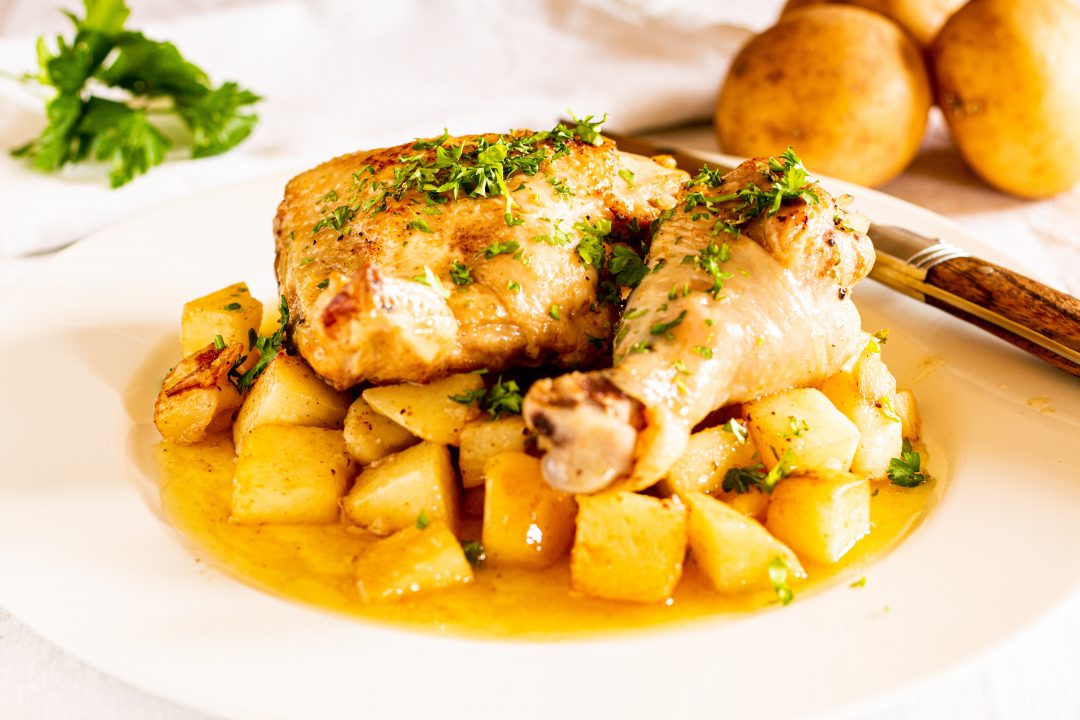
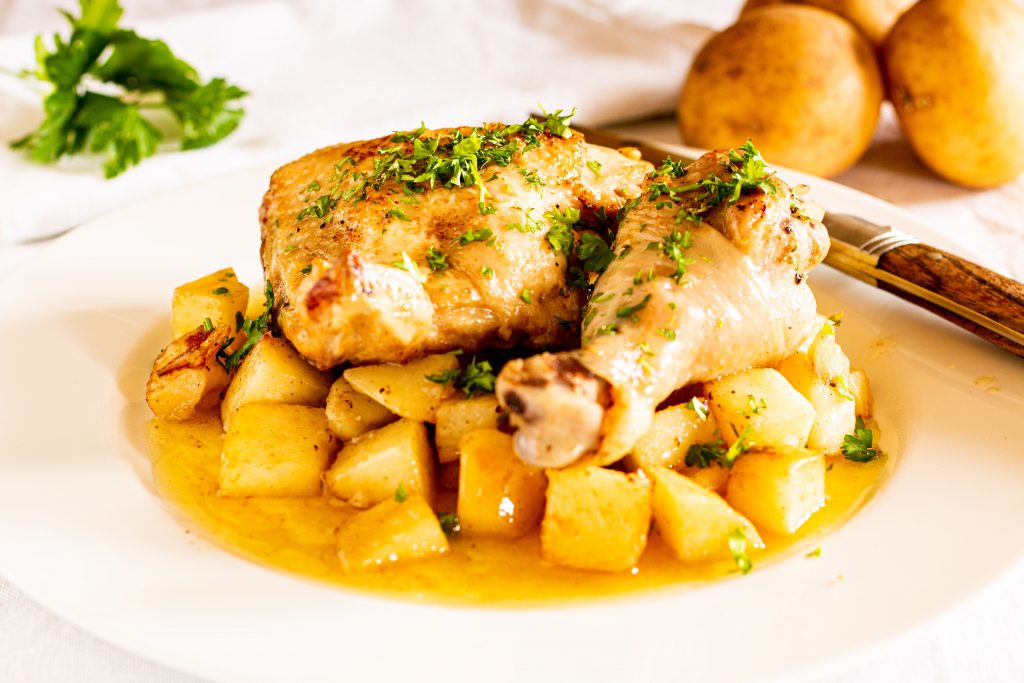

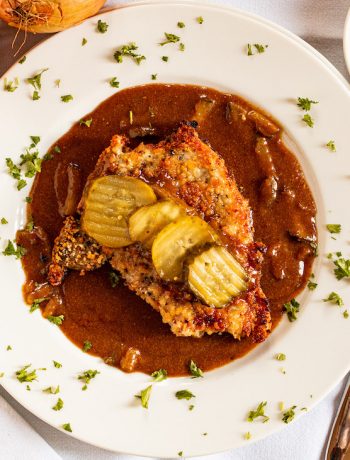
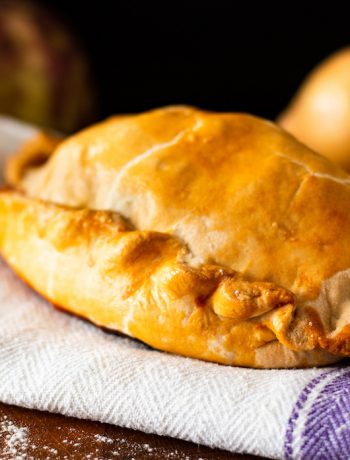
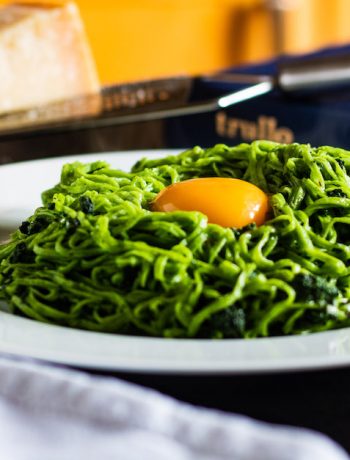
No Comments